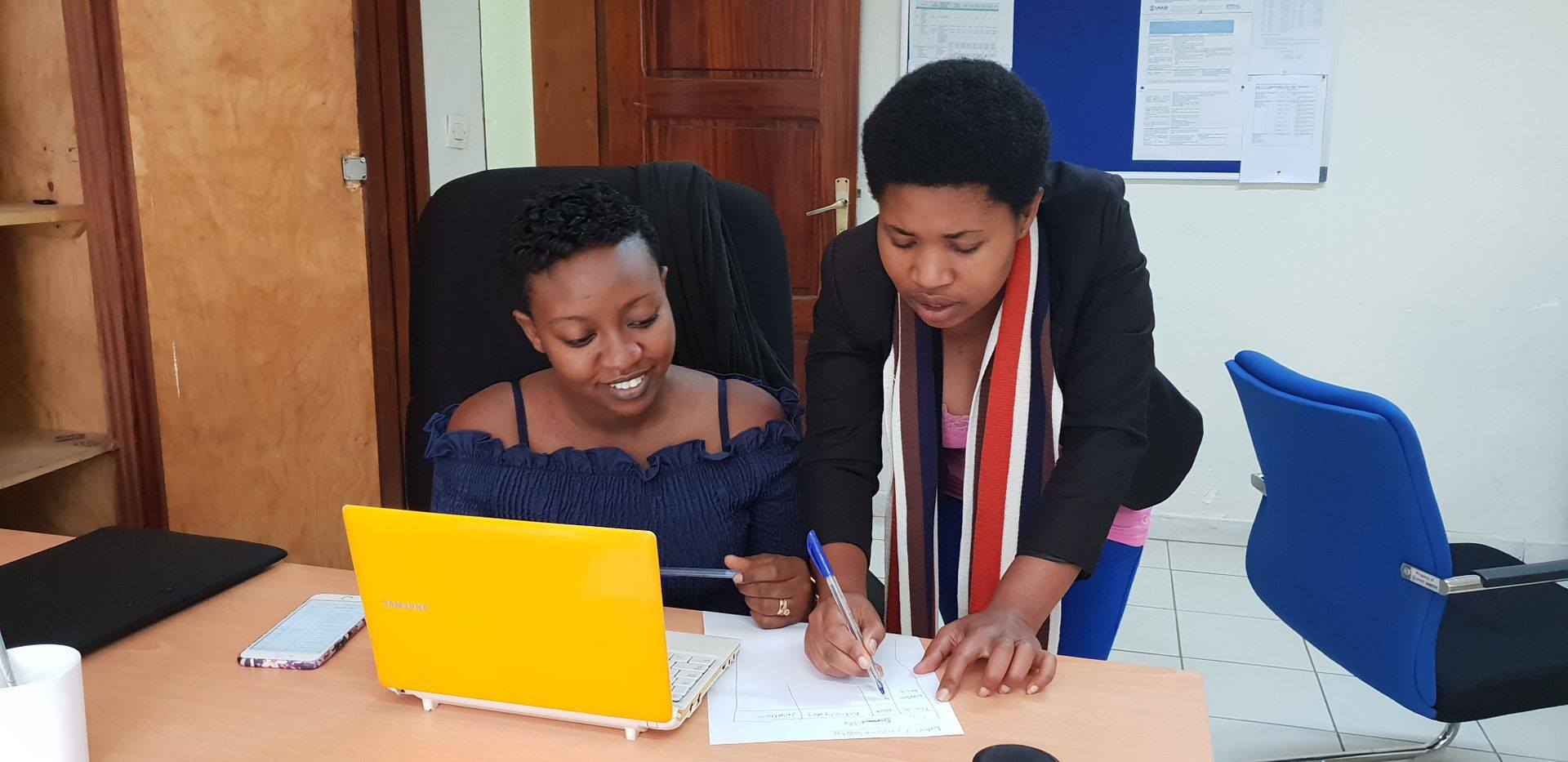Youth Engagement in Agriculture Improves Access to Digital Technology and Extension in Rwanda
In Rwanda, only 3.18 million out of 7.75 million individuals of working age are employed, and the number has declined by more than 13 percent since August 2020. The agriculture sector also lost upwards of 47,000 jobs while the unemployment rate stayed relatively high at 25.5 percent among the youth population (National Institute of Statistics of Rwanda).
Linking youth to agriculture can significantly contribute to innovation, job creation, and agriculture sector development. The USAID-funded Feed the Future Rwanda Hinga Weze activity works to attract youth in agriculture by increasing agricultural productivity, employing youth through internships, improving access to finance, and strengthening youth capacity in digital and private sector extension. Since 2017, the Activity has reached 733,000 individuals, of whom over 24% were youth.
To support the development of youth entrepreneurs, the Hinga Weze Activity provided internships to over 200 youth and awarded $113,188 (117.7 million RWF) in youth-specific grants for companies including Mahwi Tech, Carl Group, Zima Enterprise, and KOTIB. Using the grant funds, Mahwi Tech was able to transform its M-LIMA platform, a youth-owned agricultural market information platform, into an online marketplace that can serve the dual purposes of providing market information and facilitating market linkages. Similarly, technology company BK TecHouse was able to expand its online Smart Nkunganire System to support over 200,000 new farmers, including 51,324 youth, by improving their agricultural input and information distribution and digitalizing their agrodealer operations through a Mobile Order Processing Application.
Hinga Weze’s activities also strengthened youth capacity in extension by including youth in digital extension programming, integrating youth in public and private extension services, and providing youth-friendly approaches to extension and farming through the New Extensionist Learning Kit (NELK). Hinga Weze trained 133 youth on the use of digital extension, 15 youth on digital extension content creation, and 21 youth on extension video dissemination. To date, these youth have produced six videos on improved maize cultivation and helped train 4,000 farmers on maize production techniques using the Center for Agriculture and Bioscience International’s (CABI) App—a mobile learning application focused on the production, harvest, and post-harvest management of maize.
“Youth in Rwanda have quickly adopted information communication technology (ICT) tools and platforms. By using youth to customize and promote digital technologies, the Activity is supporting the advancement of ICT and transforming the way agricultural technologies are transferred to smallholder farmers,” said Laurence Mukamana, Hinga Weze’s chief of party.
While Hinga Weze continued to utilize traditional extension methodologies to help farmers adopt good agriculture practices, such as on-site coaching and Farmer Field Schools, the Activity also partnered with master trainers from the Rwanda Agriculture Board and the Ministry of Agriculture and Animal Resources to help youth expand engagement, training, and digital tools to extension agents and farmers through the Government of Rwanda’s Twigire Muhinzi national extension program. By leveraging existing government and private sector structures, Hinga Weze was able to create ownership and ensure the sustainability of promoted practices and methodologies beyond the life of the activity.




